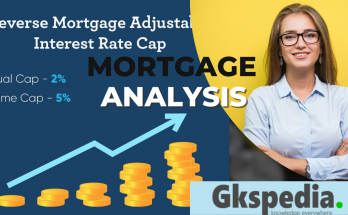Introduction: In the realm of mortgage financing, not all lenders follow the same rulebook. Non-Conforming Mortgage Lenders have carved a niche for themselves, offering unique opportunities for homebuyers who don’t fit the traditional lending mold. If you’re in the market for a mortgage and your financial situation doesn’t align with standard criteria, understanding the world of Non-Conforming Mortgage Lenders is crucial. In this comprehensive guide, we’ll take a deep dive into the realm of Non-Conforming Mortgage Lenders, shedding light on who they are, what they offer, and how they can help you secure the home of your dreams. Join us as we explore the options available beyond the conventional, empowering you to make informed decisions about your home financing journey.
What Is a Non-Conforming Mortgage Loan?
A non-compliant loan is a mortgage that does not meet the compliant loan guidelines set by Fannie Mae and Freddie Mac. Loans are often classified as noncompliant because the loan amount exceeds the compliant limit ($647,200 in most US counties). In addition to higher loan amounts, Axos Bank’s non-conforming loans can enhance down payment and loan eligibility opportunities.
A non-compliant mortgage isn’t bad credit in the sense that it’s risky or overly complicated. Financial institutions do not like it because it is difficult to sell because it does not comply with GSE guidelines. Because of this, banks usually charge higher interest rates on non-compliant loans.
Most mortgages are initially written by commercial banks but often end up in the Fannie Mae and Freddie Mac portfolios. These two GSEs purchase loans from banks and package them into mortgage-backed securities (MBS) that are sold on the secondary market. An MBS is a type of asset-backed security (ABS) backed by a series of mortgage loans from regulated and licensed financial institutions. There are private finance companies that buy, package, and resell MBS, but Fannie and Freddie are his two biggest buyers.
The bank will use the proceeds from the mortgage sale to provide a new loan at the current interest rate. But Fannie Mae and Freddie Mac can’t just buy mortgage products. Two of her GSEs have federal restrictions on credit purchases that are considered relatively risk-free. These loans are mortgage-friendly and banks like them simply because they are easier to sell.
In contrast, mortgages that Fannie Mae and Freddie Mac cannot afford are inherently riskier for banks. These hard-to-sell loans should remain in the bank’s portfolio or be sold to a company that specializes in the secondary market for non-compliant loans.
A non-compliant mortgage is a mortgage that does not meet Government Sponsored Enterprise (GSE) guidelines. GSE policies typically include maximum credit amount, down payment requirements, credit requirements, etc. Loans do not meet the above requirements and tend to be riskier as they are more difficult to sell. Therefore, they carry higher interest rates than matching mortgages.
Types of Nonconforming Mortgages
The borrower’s circumstances and types of loans that Fanny and Freddy consider noncompliant vary.
The most common non-compliant mortgages, often called jumbo mortgages, are loans written at higher amounts than the Fannie Mae or Freddie Mac limits. In 2022, that limit is $647,200 in most U.S. counties but could be as high as $970,800 in some high-cost areas such as New York City and San Francisco.
Mortgages don’t have to be huge to be non-compliant. Even small deposits can trigger false statuses. Thresholds vary but are 10% for traditional mortgages and just 3% for Federal Housing Administration (FHA) loans.
Another factor is the buyer’s debt to income (DTI) ratio. This generally cannot exceed 43% to qualify as a compliant loan.
A credit score of 660 or higher is also usually required.
The property type can also determine if a mortgage is non-compliant. For example, condo buyers are often tripped up to learning that their dream villa is not compliant because it is considered out of warranty. This includes condominium associations where a single entity, such as a developer, owns 10% or more of the unit. Other pitfalls include if the unit is largely unoccupied by an owner, more than 25% of the square footage is used for commercial purposes, or the Homeowners Association (HOA) has filed a lawsuit. There are cases.
Jumbo mortgage
Loans over the limit offered by Fannie Mae and Freddie Mac. For example, the US limit is approximately $510,000. However, in certain densely populated areas such as San Francisco and New York City, the limit can be as high as about $766,000, which is more than Fannie Mae and Freddie Mac offer.
Low downpayment
If the mortgage down payment is low, it may also be considered non-compliant. The threshold varies between 3% and 10%.
High Debt-to-Income (DTI) ratio
To qualify as a compliant loan, the buyer must demonstrate a DTI ratio of less than 42% and a credit score above 630-650. Anything higher and not within the respective range is considered a non-compliant mortgage. For example, a buyer with a DTI of 50% and a credit score of 600 is probably only eligible for non-compliant loans.
Non-compliant credit guidelines typically have much more room for conditions than compliant loans. This extends to your credit score as well.
A compliant loan requires a minimum credit score of 620. Do you know the credit rating requirements for non-compliant loans? You are right. They don’t.
Well, that doesn’t mean you’re free to join the world of non-compliance.
Many borrowers with poor credit scores or troubled credit reports seek noncompliant loans for this reason. Each loan program is different and should discuss your unique financial situation, including your goals, challenges, and concerns. APM will be happy to sit with you and review this before you apply to ensure your opportunity is recognized.
Advantages of Non-conforming Loans
Flexible Terms
As the name suggests, bad debt exists to go against the grain. As such, it offers more flexibility than traditional credit policies. Relaxed rules on non-compliant lending allow lenders to tailor lending programs to borrowers’ circumstances. This could mean an interest rate that is fixed for a period of time before changing to a floating rate, or it could mean a loan term outside of his standard 15 or 30 year term.
Lower downpayment requirements
Non-compliant government-backed loans typically have lower down payment requirements compared to compliant loans. For example, an individual can buy a home with a 0% down payment if they qualify for a non-compliant government-backed loan.
Loans guaranteed by the government, such as VA, USDA, and FHA loans, are likewise regarded as non-conforming. For consumers looking to purchase a home, these loans typically offer lower down payment requirements than conventional conforming loans. In fact, VA loans sometimes require no down payment, while FHA loans only require 3.5%.
Jumbo loans, another non-conforming loan type, allow for a minimum down payment of 5%, while most lenders prefer between 10% and 15%.
Larger loan limits
If an individual wants to purchase an expensive property, they can apply for a jumbo loan. This allows you to take advantage of higher credit limits than matching loans.
Bad debts do their own thing, right? Therefore, it is not surprising that these financing vehicles can finance a wider range of properties than conforming loans. This includes non-guaranteed condos and co-ops, as well as timeshares, fractional ownership, assisted living community units, multi-unit condos, and project units that require prior membership. B. Country clubs or golf courses available for purchase. The non-conforming loan can also be used to purchase condominiums currently in litigation.
Assets such as condominiums and co-ops are generally considered out of warranty if:
The project is still under construction. Short-term rental is possible.
One company owns more than 10% of its units.
Non-owners are rented the majority of the units.
The project developer has not yet turned over control of her HOA to the owner.
When buying a unit in a large project, remember that the credit score isn’t the only thing a lender needs to consider. You should also assess the developer’s credibility and consider the project as a whole. For this reason, many borrowers choose non-compliant loans for large projects.
Access to more types of properties
Compared to a matched loan, a non-matched loan allows an individual to purchase real estate that a matched loan would not be able to acquire.
Even if the renter is fully qualified, the property may not be. For example, someone buying a log home in the suburbs may need a non-compliant loan because there are no comparable properties to verify value.
This property may be a condominium in a complex that is not approved by any of the major credit agencies such as Fannie Mae or FHA.
There are many reasons why real estate cannot receive traditional financing. In such cases, applicants may choose non-compliant lenders and loans.
Lower credit required
Compared to a matched loan, a non-matched loan allows an individual to purchase real estate that a matched loan would not be able to acquire.
For example, consider a person with a credit score of 610 due to previous medical problems. Her Credits If her score goes down to 610, Fanny and Freddy will not lend her any money because her minimum credits score is 620.
Individual lenders may approve loans if they are otherwise good borrowers. This means you have little outstanding debt or a large down payment. But it won’t be a compliant mortgage because it’s excluded by Fanny and Freddy’s rules. It may offer her a non-compliant loan.
Verifying your income is an important part of the loan application process. Especially because your debt-to-income ratio (DTI) has a big impact on whether you are eligible for a loan.
This is not the case for non-compliant loans. At least, it doesn’t have to be. Income can be verified in many non-traditional ways, including B. Bank statements or other documents that can prove your personal finances and income, depending on other factors of the transaction.
A non-compliant mortgage can take into account other parts of your financial situation, such as your overall cash flow, home equity, and assets. For these reasons, non-conforming loans are often preferred by the self-employed and those working on seasonal commissions. These loans are not offered by all lenders and may come with additional terms such as higher interest rates or loan requirements, but are unable to qualify through traditional routes with income It’s worth it for the borrower. inspection.
Disadvantages of Non-conforming Loans
The disadvantage of non-conforming loans is that individuals are exposed to higher interest rates and therefore have to pay higher coupons on a fixed basis.
Pros & cons of non-conforming loans
- more adaptable than conforming loans. Your lender can design a plan that works for both of you.
- increased loan limits. Jumbo loans frequently reach millions of dollars. Limits are decided upon by each lender.
- more choices for properties Your options for residences will be greater the more you can borrow.
Cons of non-conforming loans
- Because of the more specific standards, a lender might include provisions that are unfair to you. You could require expert counsel when negotiating your deal.
- fewer options for lenders. Jumbo loans are offered by many lenders, but not all. Even fewer provide other non-conforming loan types.
- higher rates of interest. Your lender has no one to share the loss with if your loan defaults without government support. Higher risk inevitably translates into higher rates.
- more difficult to qualify for Even with jumbo loans, this isn’t always the case but is frequently the case.
When to Choose a Nonconforming Loan
We recommend choosing a non-compliant loan if the following features are attractive and in your favor:
- 0% deposit
- Relaxed credit requirements
- upper limit
In general, noncompliant loans are best suited for people who are unable to meet the requirements of a compliant loan but would like to purchase a home with a poor credit rating. Again, it’s important to remember that noncompliant loans tend to charge higher interest rates over time.
What is a Government-Sponsored Enterprise GSE?
A Government Sponsored Enterprise (GSE) is a government entity designed to allocate credits across sectors within the United States. They help alleviate all personal debt. His three GSEs within the United States are:
Federal Mortgage Mortgage Corporation (Freddie Mac)
Federal Mortgage Association (Fannie Mae)
Government National Mortgage Association (Ginnie Mae)
The three GSEs mentioned above were created to be cost-effective and increase the flow of debt in the housing market.
How Non-conforming Mortgages Work
Banks typically underwrite most mortgages and are often bundled into GSE portfolios by Fannie Mae and Freddie Mac. Specifically, Fannie Mae and Freddie Mac buy bank mortgages, combine them into mortgage-backed securities, and sell the loans in the secondary market.
The bank uses the proceeds from the GSE’s mortgage sale to invest in new loans at the interest rates offered. However, it is important to realize that Fannie Mae and Freddie Mac cannot purchase mortgage-backed securities because they must comply with federal rules and restrictions. For example, the loan you purchase should be relatively low-risk. Therefore, loans that meet the GSE requirements are called bank-preferred conforming mortgages.
Mortgages that do not meet the GSE requirements are noncompliant loans and cannot be sold to Freddie Mac or Fannie Mae. Therefore, they remain in the bank’s portfolio or are sold to buyers who specialize in non-compliant mortgages.
Loan Amounts
The size of non-conforming mortgages varies by region and by year. They are those expected to cost over $647,200 in 2022, an increase from $548,250 in 2021. In areas where housing prices are significantly higher, non-conforming mortgage amounts begin at over $970,800 in 2022. Up from $822,375 in 2021, this
Documentation
Be prepared to give the lender a lot of information when seeking credit outside of standard channels. You must submit multi-year income tax returns, payslips, and bank statements. If you have other assets or items of value, we may ask you to value them. Lenders look for materials that may relate to your wealth, creditworthiness, or income to determine if you are safe enough to provide a loan.
The Down Payment
Some lenders only accept a 10% down payment, but this is not common. Often, private his mortgage insurance with as little as a 10% down payment is required. Many lenders require a down payment of around 20%, but the exact amount depends on the details of the loan.
Your Credit Score
You need a credit score of at least 680 to get this type of loan. Your credit rating also affects the interest you pay. A better credit rating can save you money over the life of the loan.
Debt-to-Income Ratio
Lenders aim for a debt-to-income ratio of no more than 40%, but may settle for more if large amounts of cash are available.
Cash Reserves
Most non-compliant jumbo lenders should have a reasonable amount of cash on hand as the size of their loans can result in significant losses in the event of a foreclosure. The amount is set by each lender but is often the equivalent of a year’s mortgage payments.
Interest Rate
Interest rates on non-compliant loans are almost always slightly higher than on low-value loans. While still making money, lenders compete to maintain interest rates as low as feasible.
Closing Costs and Fees
Due to the fact that fees are set as a percentage of the mortgage total, closing expenses and fees are greater for non-conforming mortgages. For this kind of mortgage, there are other closing charges as well, such as the cost of numerous property appraisals.
Compete Risk-Free with $100,000 in Virtual Cash
Use our no-cost stock simulator to gauge your trading prowess. Rise to the top by competing against thousands of his Investopedia traders! Send transactions in a simulated setting before putting your real money at risk. Practice your trading strategy so you have the experience you need when you are ready to enter the real market.




